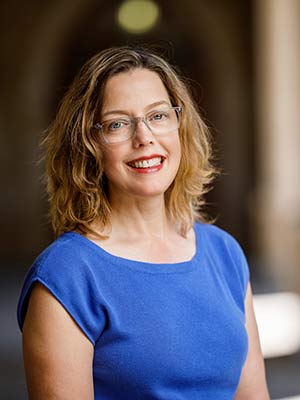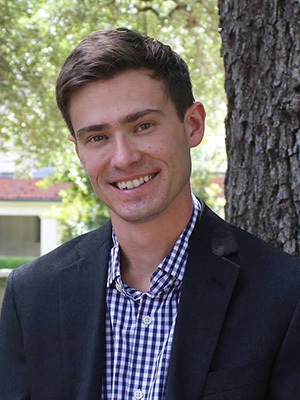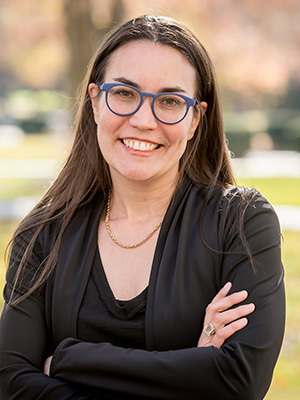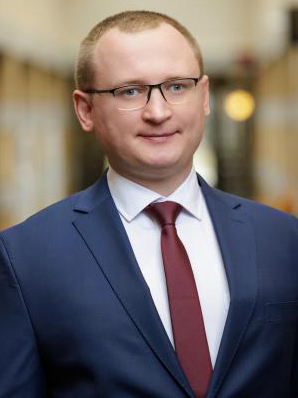Notre Dame experts reflect on first anniversary of war in Ukraine
On Feb. 24, 2022, Russian President Vladimir Putin initiated war against Ukraine. Since that day, more than 18,000 civilian casualties have been reported and as many as 8 million Ukrainians have been forced to evacuate. Nearly a full year later, Putin shows no sign of slowing down his efforts; in fact, many observers believe he will launch a major new offensive in the coming months.
University of Notre Dame experts take a retrospective view on this one-year mark of the Russian invasion and provide insight into the war and its impact on Ukraine, the U.S. and the world.
International law, unique significance

Mary Ellen O’Connell, the Robert and Marion Short Professor of Law and research professor of international dispute resolution, is a co-author of “The Crisis in Ukraine,” editor of the book “What is War?” and former professional military educator for the U.S. Department of Defense.
“Russia’s war on Ukraine is uniquely egregious in the post-World War II era,” she said. “It has had a devastating global impact. Death from starvation in drought-stricken countries is linked to disruption of food and fuel supplies. The war’s toll on Ukraine’s people is incalculable.”
O’Connell says the invasion also stands out as only the second attempt to eliminate a member of the United Nations through aggression since the U.N. Charter codified the ancient moral and legal prohibition against the use of force in 1945.
“Iraq made the first attempt in 1990 when it invaded Kuwait,” she said. “The difference now is that Russia’s war comes at a time when the charter prohibition on force has never been weaker. The world responded in 1990 with near unanimity. Condemnation at the U.N. was swift. A global coalition liberated Kuwait in 100 hours of combat. The defense of Ukraine is entering its second year. Between the liberation of Kuwait and the defense of Ukraine, the United States was in a position to build respect for the charter — to raise the prohibition’s pull to compliance. It did the opposite.
“While never attempting conquest as Russia has done, the U.S.’s flimsy legal justifications for using force have weakened the normative barriers to ultimate violence,” O’Connell said. “The U.S. has provided Ukraine with material support but must do more to support the prohibition. End targeted killings today and condemn all charter violations whether by adversary or ally. The law against war must prevail as the imperative lesson of Russia’s war on Ukraine.”
‘A grave risk of escalation’

Ian Ona Johnson, the P. J. Moran Family Assistant Professor of Military History and an expert on Russian foreign relations and military technology, sees no end in sight for the conflict.
“Putin seems to believe that victory in Ukraine is now essential for the survival of his regime and that the West will eventually tire of supplying Ukraine,” Johnson said. “To continue the war, Russia began a partial mobilization of military reservists last September, followed by efforts to recruit large numbers of convicts and foreign fighters. A much larger call-up is expected sometime this spring. It is clear the Kremlin thinks it has the capacity to continue the war and resume the offensive.”
Many observers expect a major Russian effort aimed at securing most of the eastern half of the country in the late spring, Johnson noted.
“On the Ukrainian side, there is also little incentive to negotiate at the moment,” he said. “The country’s military has performed far better than outside observers expected. Zelenskyy has already made clear he will not negotiate while Russian troops are on Ukrainian territory. However, Ukraine’s manpower is limited; its economy is now in shambles. Ukraine’s war effort is almost entirely dependent on the provision of aid from Europe and the United States, which has been forthcoming, but in some countries like Germany is contentious.”
It appears Ukraine will begin receiving much more advanced weaponry this spring, including German Leopard II and American Abrams tanks. The provision of F-16 fighter aircraft is also under consideration. While such moves improve Ukraine’s capacity to resist a new Russian offensive, Johnson said, they also run “a grave risk of escalation.”
“The picture as we begin the new year, unfortunately, is a grim one,” he said. “Without a major change in the political or military fortunes of the two sides, peace is unlikely.”
Effects on agriculture, trade

Susanne Wengle, the Nancy R. Dreux Associate Professor of Political Science, holds expertise in post-Soviet transitions, food and agricultural systems, and comparative and international political economy. She has been following the effects of the war on Ukrainian agriculture, the products of which account for roughly 40 percent of the country’s export earnings. Wengle noted that when Russia’s army began encroaching upon Kyiv last February and March, it was less well-known that Russian naval forces attacked ships and blocked all commercial trade to and from Ukrainian ports.
“Not only is grain Ukraine’s most important export commodity, but Russia’s naval blockade of the Black Sea gave it tremendous leverage over world food prices,” Wengle said.
“The most important turning point with regard to Ukrainian grain and its ability to reach global markets was the establishment of the grain corridor or, more formally, the Black Sea Grain Initiative (BSGI), which brought a limited and temporary easing of the blockade as part of an agreement between Ukraine and Russia, brokered by Turkey.”
Wengle explained that this agreement, which was reached in November and requires renegotiations, had significant economic consequences for Ukraine — whose export earnings recovered and GDP improved — and the world, which saw food commodity prices fall.
“Nevertheless, the BSGI is a limited, politically tenuous stop-gap measure — a ‘better than nothing’ solution against the backdrop of Russia’s continued control of the Black Sea region,” Wengle added.
“It is important to keep in mind that as long as Russia can hold Ukrainian grain hostage, the Black Sea constitutes an effective blackmail opportunity it will likely use in the future to negotiate concessions in the West’s sanctions regime.”
Shifting perceptions, creating unity

Nazarii Stetsyk, a visiting fellow at the Kellogg Institute for International Studies at the Keough School of Global Affairs and an associate professor in the Department of Theory and Philosophy of Law at Ivan Franko National University in Lviv, Ukraine, focuses his research on theoretical and comparative issues of case law practice. He teaches courses on international and European standards of human rights, human rights in case law practice and the right to a fair trial. Stetsyk has been observing the global shifts in perception of Russia and Putin over the past year, and the qualitative and quantitative changes that have occurred within Ukrainian society.
“If, before the aggression, the Russian regime pretended to be a civilized international actor that adheres to rules-based order, now — after targeted and massive terrorist attacks on peaceful Ukrainian cities and civilians, which qualify as war crimes and crimes against humanity — the world has seen the true face of Putin and his regime,” Stetsyk said.
“The world has stopped believing and fearing him. And this is one of the most important psychological factors of united efforts to defeat him.”
From a sociological perspective, Stetsyk stated that the sense of coherence and unity have significantly increased for the Ukrainian people, as evidenced by the rousing volunteer movements taking place during the first weeks and months of the war. Furthermore, according to Stetsyk, statistics show that the majority of Ukrainians find it unacceptable to cede territories in order to achieve peace and deem it necessary to continue the armed struggle despite the possibility of continued attacks.
“Before the war, society was divided by internal and petty, often artificially provoked, confrontations by politicians,” he said. “Now, it demonstrates unity in the principal issues of its existence. Ukrainians are united in the necessity to achieve victory and defeat the violent Russian regime.”
The qualitative and structural impact of the war on the Ukrainian population must also be considered, Stetsyk noted. With 18 percent of the population forced to evacuate as refugees abroad, and 15 percent internally displaced, the war’s short- and long-term consequences on Ukraine and other European countries are already being felt.
“All that remains now for the Ukrainian people is to win this confrontation,” Stetsyk concluded. “Victory will obviously mean the restoration of territorial integrity and sovereignty, further reparations for the damage and the bringing of justice to the aggressor.”
Read last year’s perspective piece “Notre Dame experts weigh in on Russian invasion of Ukraine” posted on Feb. 24, 2022, the day the war began.
To view the Nanovic Institute for European Studies’ “The war in Ukraine: Reassessing the Russian invasion” flash panel from Jan. 25, click here.
Latest Faculty & Staff
- Faculty receive prestigious early career awards from National Science FoundationDuring the 2024-25 academic year, four researchers in the University of Notre Dame’s Colleges of Engineering and Science received early-career awards from the National Science Foundation.
- In new research, Roy Scranton explores climate change and the limits of human progressIn his most recent book, “Impasse: Climate Change and the Limits of Progress,” Scranton, an associate professor of English, defines the impasse he sees as “not only political and institutional, but cognitive, existential and narrative” and asserts that the only path forward is through embracing what he terms ethical pessimism. “A lot of people confuse pessimism with nihilism, apathy and despair,” Scranton said. “But pessimism is actually about recognizing our limits, letting go of unrealistic goals, finding solidarity in the fact of human suffering and doing what you can now, not in some utopian future.
- Joule Bergerson, energy technology assessment expert, named new director of ND EnergyND Energy faculty director Joule…
- In memoriam: Alasdair MacIntyre, the Rev. John A. O’Brien senior research professor of philosophy emeritusAlasdair MacIntyre, the Rev. John A. O’Brien senior research professor of philosophy emeritus and a permanent senior distinguished research fellow at the de Nicola Center for Ethics and Culture, died on May 21, 2025. He was 96.
- Santiago Schnell, dean of Notre Dame’s College of Science, appointed as provost of DartmouthSantiago Schnell, the William K. Warren Foundation Dean of the College of Science at the University of Notre Dame, has accepted an appointment as provost at Dartmouth College. He will depart Notre Dame at the end of June and begin his new role in July.
- Notre Dame’s Fightin’ Irish Battalion receives Department of Defense award as nation’s top Army ROTC programThe United States Department of Defense honored the University of Notre Dame’s Army ROTC Fightin’ Irish Battalion as the nation’s top Army collegiate program for the 2023-24 academic year. This will be the first time the unit has received the department’s Educational Institution Partnership Excellence Award, which recognizes the program’s achievements in recruiting, educating, training and commissioning leaders of character to be the next generation of military officers.












